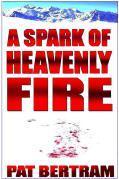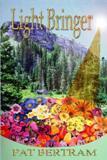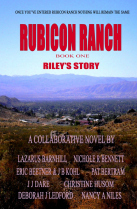Pat Bertram's Blog, page 279
February 22, 2012
What is the easiest part of the writing process?
 The easiest aspect of writing is editing. The words are all there, it's just a matter of making sure they are the right ones and that they say what I want them to say. The most rewarding is knowing I wrote a book worth reading.
The easiest aspect of writing is editing. The words are all there, it's just a matter of making sure they are the right ones and that they say what I want them to say. The most rewarding is knowing I wrote a book worth reading.
Here are some other authors' responses to the question about the easiest part of the writing process. The comments are taken from interviews posted at Pat Bertram Introduces . . .
-
From an interview with Rod Marsden, Author of "Disco Evil" and "Ghost Dance"
The first draft is the easiest part of the writing process. You can really let yourself go. Very few writers expect the first draft to be the last. Michener went through a number of drafts before he was happy with Hawaii. I go through a number of drafts before I even approach an editor.
From an interview with Joylene Nowell Butler, Author of "Broken but not Dead"
Editing. Once I've written that first draft, I step back and regroup for a week or so. I do the same thing when I'm finished the last draft. The second draft is my favourite part. It's filling in the blanks, eliminating all the garbage, adverbs, excessive wordage, unnecessary characters and scenes, and baring the bones of the story. It never fails to excite me during this process. Like unveiling Cinderella's beauty. Love it.
From an interview with J J Dare, Author of "False Positive" and "False World"
Inspiration. When it's there, the words flow like a raging river. If the story is in my head and I've been tapped by my muse (and she stays with me), I can write a novel in a week.
From an interview with A. F. Stewart, Author of Once Upon a Dark and Eerie
For me, the easiest element of writing is the dialogue. I rarely have a problem with the flow of dialogue. Possibly because I can hear all those character voices whispering in my head.
From an interview with Michael Haskins, Author of "Car Wash Blues"
Oh that's easy, turning on the computer!
From an interview with James Boyle, Author of "Ni'il: Waking Turtle"
There comes a point after you've struggled for days and weeks, seemingly trying to wring words out of stone, when you finally hit your groove and the story simple flows out of you. It feels less like writing than channeling the story from some outside source. It is an amazing feeling when it happens.
So, for you, what is the easiest part of the writing process?
(If you'd like me to interview you, please check out my author questionnaire http://patbertram.wordpress.com/author-questionnaire/ and follow the instruction.)
Tagged: easiest part of writing, editing, first draft, Inspiration, the writiing process








February 21, 2012
How much of yourself is hidden in the characters in your book?
 Freud thought every role in a dream was played by the dreamer, and in a way, that's the way my books are. The emotions the characters feel are mine since I can only write what I feel, and their personal problems are ones I've grappled with. In the writing, though, the characters become more than I ever was as they develop in response to the needs of the story. Kate from A Spark of Heavenly Fire is the most like me, maybe because she was the first character I created.
Freud thought every role in a dream was played by the dreamer, and in a way, that's the way my books are. The emotions the characters feel are mine since I can only write what I feel, and their personal problems are ones I've grappled with. In the writing, though, the characters become more than I ever was as they develop in response to the needs of the story. Kate from A Spark of Heavenly Fire is the most like me, maybe because she was the first character I created.
Here are some other authors' responses to the question about much of themselves are hidden in their characters. The comments are taken from interviews posted at Pat Bertram Introduces . . .
From an interview with A. F. Stewart, Author of Once Upon a Dark and Eerie
I really hope there is very little of me in my characters since many of them tend to be immoral, vicious, bloodthirsty killers, or unwise enough to get themselves into situations where they are maimed or killed. Well, maybe they share my odd sense of humour.
From an interview with Debra Purdy Kong, Author of "The Opposite of Dark"
When I first began writing about Casey several years ago, I think we had more in common than we do now. Like Casey, I wasn't interested in marriage, I was studying criminology, and my parents were divorced. However, I've grown older while Casey's stayed young so our interests and concerns are quite different. She's still building her career and attending school, and looking for love. I've been there, done that, so I look at her from a different perspective and see almost nothing of myself in her now.
From an interview with Bonnie Toews, Author of "The Consummate Traitor"
There are elements of myself in both heroines, but yet they are stronger than I think I could ever be. The journalist, Lee, lives with my recurring nightmare and my affinity with the Holocaust. I have often said, "I am a Gentile with a Jewish soul." The pianist, Grace, reflects my more naive, pollyanna side. And yet, the one time I headed into the Rwandan conflict that proved the UN's promise of "never again" would the world tolerate another genocide to be an outright lie, I went with complete faith, like Grace, that I was protected from harm.
From an interview with J J Dare, Author of False Positive and False World
The aggressive part of my passive/aggressive personality is turned loose in the books. I can let myself go through my characters; I can destroy without regret, lie with a straight face and a cold heart, and generally, get away with murder.
From an interview with Dellani Oakes, Author of Lone Wolf
Matilda is a lot like me in some respects. Her fierce devotion and the way she takes up for those she loves is totally me. Oddly enough, some of the aspects of Wil's personality come from me as well. Mostly, he and Marc mirror aspects of my husband's personality.
So, how much of yourself is hidden in the characters in your book?
(If you'd like me to interview you, please check out my author questionnaire http://patbertram.wordpress.com/author-questionnaire/ and follow the instruction.)
Tagged: are authors hidden in their characters, characters, dreams, Freud








February 20, 2012
What words would you like to leave the world when you are gone?
 I'll be leaving the world my books, which are words enough, but besides that, this is how I'd like the world to see me: "Pat Bertram has a marvelous ability to write the longest parables in all of literature. She unglues the world as it is perceived and rebuilds it in a wiser and more beautiful way." — Lazarus Barnhill, author of The Medicine People and Lacey Took a Holiday.
I'll be leaving the world my books, which are words enough, but besides that, this is how I'd like the world to see me: "Pat Bertram has a marvelous ability to write the longest parables in all of literature. She unglues the world as it is perceived and rebuilds it in a wiser and more beautiful way." — Lazarus Barnhill, author of The Medicine People and Lacey Took a Holiday.
Here are some other authors' responses to the question of what words they would like to leave the world when they are gone. The comments are taken from interviews posted at Pat Bertram Introduces . . .
-
From an interview with Jim Magwood, Author of "The Lesser Evil"
Some goals are so worthy that even to fail is glorious.
From an interview with June Bourgo, Author of Winter's Captive
Hmm…my writing career has come late in life for me. I have been a late bloomer with many things in my life. So I guess I would say: You're never too old to follow your dreams and accomplish your goals. I don't mind getting older, if I have followed my dreams. But I don't want to get old and have regrets.
From an interview with Charlie Kenmore, author of "Earth Angel"
"There's been a mistake."
From an interview with Cynthia Vespia, author of "Demon Hunter: Saga"
Wow, that's huge. I don't know about words but I'd like to know that I made the world a better place for somebody just by being there for them. My words have always been "Live Your Dreams" Because life is short and dreams shouldn't be dashed.
From an interview with Linda Nance, author of Journey Home
I tried…I really did and I did not give up.
So, what words would you like to leave the world when you are gone?
(If you'd like me to interview you, please check out my author questionnaire http://patbertram.wordpress.com/author-questionnaire/ and follow the instruction.)
Tagged: last words, Lazarus Barnhill, making the world a better place, parables, regrets, world's longest parable








February 19, 2012
How long had the idea of your book been developing before you began to write the story?
 Light Bringer, my most recent release from Second Wind Publishing, stewed in my brain pan for several years before I actually started to write it. It was the first book I conceived, but I couldn't figure out who my alien characters were, where they were from, how they traveled here, and why they came, so when other stories captured my imagination, I followed my enthusiasm. In between finishing my various novels, I worked on Light Bringer, trying to develop the idea and research the specifics. If you include my research, which I'd been doing for decades before the story ever entered my mind, you could say the idea for the book had been developing for about thirty years.
Light Bringer, my most recent release from Second Wind Publishing, stewed in my brain pan for several years before I actually started to write it. It was the first book I conceived, but I couldn't figure out who my alien characters were, where they were from, how they traveled here, and why they came, so when other stories captured my imagination, I followed my enthusiasm. In between finishing my various novels, I worked on Light Bringer, trying to develop the idea and research the specifics. If you include my research, which I'd been doing for decades before the story ever entered my mind, you could say the idea for the book had been developing for about thirty years.
Here are some other authors' responses to the question of how long the idea had been developing before beginning to write their stories. The comments are taken from interviews posted at Pat Bertram Introduces . . .
From an interview with Jerold Last, Author of "The Ambivalent Corpse"
It took a while for me to find the time to sit down and start writing the book. In this case "a while" spanned 12 years. The major challenges for me are finding the time to write and the discipline to edit the dialogue and descriptive passages over and over until things feel right and pass my wife's critical evaluation. I haven't needed to spend much time on research as yet, since I've lived in the locations that the books have been set in.
From an interview with Guy Harrison, author of "Agents of Change"
For over a year, if you can believe it. I originally wrote Agents of Change as a television pilot script around this time last year. As an aspiring screenwriter for many years, I finally got tired of banging my head against the wall as I attempted to sell the script.
This past October, I finally asked myself "what if I wrote a novel?" I really believed in the television pilot's concept but knew I needed to rework it for the purposes of a book. It's darker than the television series would have been. Truth be told, I actually like it a lot better as a novel.
From an interview with Dale Cozort, Author of "Exchange"
For this particular book, almost twenty years. I know that because I came across a notebook with dated entries from when I was in my late teens outlining some of the ideas. That's unusual for me. Most of my stories go from concept to writing within a year or two. I had the idea for Exchange long before I had the maturity or self-discipline to write it.
From an interview with Stephen Prosapio, Author of "Ghosts of Rosewood Asylum"
Funny in that this story had to "brew" quite a while, Pat. I thought up the rough idea for GHOSTS OF ROSEWOOD ASYLUM after my first novel DREAM WAR didn't sell to the Big Six publishers. I didn't quite pitch it right to my agent though, and she suggested I go with another idea I had at the time (a vampire novel). Unfortunately, I got blocked with that idea and came back to the TV Paranormal Investigator angle. Pitching it a second time to my agent went much better. She gave me some great advice. Thus, GHOSTS OF ROSEWOOD ASYLUM (GoRA) was the easiest novel to write thus far. I wrote the first draft within 3 months.
From an interview with Ellis Vidler, Author of "Cold Comfort"
Cold Comfort took about a year to write and five more to revise till I felt it was right. The first one, Haunting Refrain, took eight years to complete. I'm getting better.
From an interview with Joylene Nowell Butler, Author of "Broken but not Dead"
Too long. Someone asked me the other day about my mother and it occurred to me then that the day she died I'd written the first four pages of "Broken but not Dead". I gave them to her to read, then retired for the night. When I got up the next morning the pages were on the dining room table with spelling corrections and a note that said she liked it very much. I didn't realize then that she'd passed. That was October 16, 1999. It takes me a long time to write, and I don't think it's because I'm slow. I work on so many different projects at the same time and I like to take breaks and distance myself often.
So, How long had the idea of your book been developing before you began to write the story?
(If you'd like me to interview you, please check out my author questionnaire http://patbertram.wordpress.com/author-questionnaire/ and follow the instruction.)
Tagged: Dale Cozort, how long does it take to write a novel?, Joylene Nowell Butler, Light Bringer, novel ideas, Second Wind Publishing, what if I wrote a novel?








February 18, 2012
Feeling Small
 When you have a long-term relationship with someone, you are involved with something that is both you and bigger-than-you. By definition, love and a deep connection to another makes you bigger than you are, expanding your self beyond the barrier of your skin. After he dies, your grief is so enormous that it, too, expands beyond your self, filling some of the empty space he left behind.
When you have a long-term relationship with someone, you are involved with something that is both you and bigger-than-you. By definition, love and a deep connection to another makes you bigger than you are, expanding your self beyond the barrier of your skin. After he dies, your grief is so enormous that it, too, expands beyond your self, filling some of the empty space he left behind.
And then one day, your grief shrinks into the confines of your body, and all you are left with is you and the unfilled empty space around you, and you begin to feel very small. Doing something to fill in that empty space doesn't really help because you can't replace something you were, such as being part of a couple or feeling grief, with something you do, such as volunteer work.
That's where I am right now — feeling small — as if I am wearing clothes way too big for me. I miss being part of something that expands beyond my self, miss feeling as if I am part of something important.
I still have importance, of course. I am important in my 95-year-old father's life — he needs someone to stay with him so he can continue to maintain his independence. I am important in my siblings' lives since my being here with my father gives them peace of mind. I'm important to those who find comfort in my words. I am important to those I do volunteer work for. And yet . . . and yet . . .
My whole life has been a search for meaning, and somehow the importance of the quest is eluding me. I hope life has meaning — I'd hate for my mate's death to be the end of what he was — but I no longer have any great desire to find out what that meaning is. If there is meaning, it's there whether I search for it or not.
I sound as if I'm feeling sorry for myself, don't I? But I'm not, or at least, not very. One day, this shrunken me will feel normal, and I might even forget that once I was more than I am. But until then . . . I'm just me, and right now that doesn't feel like it's enough.
Tagged: grief, loss, Love and grief, part of something important, search for meaning








February 17, 2012
Is Irritation & Frustration a New Stage of Grief?
 I've been blogging about my grief for almost two years, and I've run out of things to say. Right now I have no great insights to share, no deep emotions to purge, no angst to get out of my system. I'm just going through the motions of having a life, hoping that someday something will spark a new enthusiasm, and there's not much to say about that. It's just a matter of waiting to see what happens.
I've been blogging about my grief for almost two years, and I've run out of things to say. Right now I have no great insights to share, no deep emotions to purge, no angst to get out of my system. I'm just going through the motions of having a life, hoping that someday something will spark a new enthusiasm, and there's not much to say about that. It's just a matter of waiting to see what happens.
A couple of days ago someone told me that pain at the death of my life mate/soul mate still showed through my writing, but the truth is, I'm going through a hiatus. I'm not feeling much of anything except irritation and frustration. Do these signify a new stage of grief? Perhaps I'm nearing the end of this time of great emotions and have descended into the pit of trivial feelings. But this irritation and frustration don't seem trivial. They loom large, coloring everything I do.
I'm irritated at having to deal with the all the foolishness of life — the eating, sleeping, grooming. I'm irritated that after all these months of grieving, I've gained no great insights, no great growth. I'm irritated that despite all the changes in my circumstances, life seems so much the same as usual, just infinitely sadder and lonelier. I'm irritated that he's still dead. I mean, come on — a joke is a joke. It's past time for him to stop playing dead so we can get on with our lives. I'm frustrated that so much seems beyond my reach — understanding, enthusiasm, wonder. And I'm frustrated at all that is within my reach — loneliness, aloneness, pointlessness. I'm both irritated and frustrated that the world still feels alien with him dead. I'm both irritated and frustrated that he hasn't bothered to call to let me know how he's doing. I'm frustrated that I still want to talk with him and irritated that I can't. I'm frustrated that I'm alone and irritated that I have no one to share my life. I'm frustrated that I don't seem to be able to get a grip on my life, and I'm irritated with my lack of motivation to even try.
I still think there could come a time when everything works out for me. (My dead life mate/soul mate was a bit of a seer, and during his last days, he told me everything would come together for me, though foolishly I never asked him what he meant.) And I'm irritated and frustrated that it hasn't yet happened.
I keep telling myself that I'm not yet where I need to be for everything to work out, and maybe that's true, but it doesn't keep me from being irritated and frustrated.
Tagged: blogging about grief, death, frustration, grief, irritation, loss








February 16, 2012
The Internet is Attacking Me!!
 I've been having problems with AOL email — they make me do a word identification every time I send a message to prove that I'm human and not a spammer. I've contacted them several times, and the issue still isn't resolved, but I had to laugh when I got this message from them today: "Please email us back so we can escalate your issue." That's exactly what I need, isn't it, for the issue to be escalated?
I've been having problems with AOL email — they make me do a word identification every time I send a message to prove that I'm human and not a spammer. I've contacted them several times, and the issue still isn't resolved, but I had to laugh when I got this message from them today: "Please email us back so we can escalate your issue." That's exactly what I need, isn't it, for the issue to be escalated?
That's not the only problem I've been having lately. In fact, there are so many, it seems as if the internet is under attack. Or maybe it's me that's being attacked by the internet.
Smashwords.com, where my books are available in all ebook formats, was out of service for a day or so.
Facebook wouldn't let me log in for several hours today. They say it was for site maintenance, but they could just as easily be retaliating against me for my article, .
I can't post comments on Blogger. They keep telling me that I got the word identification thing wrong, even though I know I didn't. One time I tried to post a comment more than a dozen times. Normally I would have given up long before that, but it was a guest post by one of my blog friends. I never did get the comment posted.
I lost the ability to log into hot mail for several hours.
I lost my internet service a couple of days ago. Couldn't log in for hours.
There were some other minor issues that I wouldn't have thought twice about a few days ago, but now I wonder — is it me? Should I be worried?
Tagged: AOL email, aol word identification, Facebook, facebook outage, hot mail outage, Internet outage








February 15, 2012
Putting the "Who" in Whodunit
 I'm collaborating with several other Second Wind Publishing authors to write a series of novels online on a blog. The first novel is about the death of a little girl. Her body was found in the desert outside a bedroom community that once had been a working ranch, hence the name of the series, Rubicon Ranch.
I'm collaborating with several other Second Wind Publishing authors to write a series of novels online on a blog. The first novel is about the death of a little girl. Her body was found in the desert outside a bedroom community that once had been a working ranch, hence the name of the series, Rubicon Ranch.
Collaboration is a bit of an over-statement. Rubicon Ranch is more of a cross between a round robin or campfire tale, with each author taking turns adding to the story, and a role-playing game. We each create and control a POV character, show who s/he is, what relationship s/he has with the deceased, and why s/he might want him dead.
I have it easy — my character, Melanie Gray, is a photographer/writer who wanders the desert taking photos for the coffee table books she used to write with her dead husband. (He wasn't dead when they were working together, of course.) He died in a one-car accident while texting his mistress, though there are suspicious circumstances leading investigators to think that perhaps he was killed. Melanie has a talent for finding strange things in the desert, such as the child's body stuffed in an abandoned television console in the first book, and the scattered body parts that will be found in the second book. This is all that leads the sheriff to suspect her.
The other characters, however, have to simultaneously prove that they are the murderer, yet also have a plausible explanation for why they acted guilty if they weren't the murderer. (That's because we don't know whodunit until all the end of the book. So not only do readers of the ongoing story not know who the villain is, neither do we.)
In the first book, the authors solved the problem of simultaneously setting their characters up to be murderers while allowing for the possibility that they were innocent by giving their characters strange characteristics, such as sleepwalking, to keep the characters themselves from knowing if they were the killer.
In the second book that we are in the process of organizing, there is no way the killer can be unaware of having killed the victim. Even if by chance the character killed in some sort of fugue state, the character will still be faced with a dead body, which he or she will cut in small pieces and distribute it around the desert.
So how do you write a character from a strict third person limited point of view, from inside the character's head, proving that your character is the killer, while at the same time giving yourself an out if the character turns out to be innocent?
Well . . . If your character has killed before, you can have him/her worrying about if the sheriff will find out what s/he did, without being specific as to which crime s/he is wondering about. You can have your character act guilty — perhaps desperately trying to cover something up. You can have him/her try to pin the murder on someone else, offering assistance to the sheriff, which would make your character seem guilty, but in the end (if your character is not the killer) have an alternate explanation. You can be hiding something in your house that can be construed as your having Morris's body that you're cutting up bit by bit. I'm sure you can come up with better ideas than these, but you get the idea.
I'm looking forward to seeing what the other authors come up with.
Meantime, if you haven't checked out Rubicon Ranch, and wish do so, click here: Rubicon Ranch.
Tagged: collaboration, Melanie Gray, Rubicon Ranch, Second Wind Publishing, victim, villain, whodunit








February 14, 2012
Big Brother, Thy Name is Facebook
 I feel as if I've fallen down a rabbit hole, and that rabbit hole has a name — Facebook. A couple of months ago, I met a reviewer on Facebook who had been prohibited from posting her reviews of mysteries on the Mystery Writer's of America Page by MWA. (Isn't that bizarre? Wouldn't you think they would have wanted her reviews.) I invited her to post her reviews in my Suspense/Thriller Writers Group. I've mentioned before that we've banned most promotions except for reviews of other authors' works, interviews with other authors, and excerpts from other authors' novels. I've been trying to foster a sense of camaraderie, of authors helping authors rather than letting the authors inundate us with book links everyone is sick of seeing, and this reviewer's posts seemed to fit with my concept.
I feel as if I've fallen down a rabbit hole, and that rabbit hole has a name — Facebook. A couple of months ago, I met a reviewer on Facebook who had been prohibited from posting her reviews of mysteries on the Mystery Writer's of America Page by MWA. (Isn't that bizarre? Wouldn't you think they would have wanted her reviews.) I invited her to post her reviews in my Suspense/Thriller Writers Group. I've mentioned before that we've banned most promotions except for reviews of other authors' works, interviews with other authors, and excerpts from other authors' novels. I've been trying to foster a sense of camaraderie, of authors helping authors rather than letting the authors inundate us with book links everyone is sick of seeing, and this reviewer's posts seemed to fit with my concept.
But now she has been banned from posting links to her reviews in my group, not by me but by Facebook. Apparently, FB now have new rules banning any sort of promotion on one's profile and from one's profile. You have to use a business page for that. And so for now, people are still being allowed to blatantly promote their books, but unpaid reviewers are banned. Not just prohibited, but blocked — the links from her WordPress account and Networked blogs no longer post to her profile. And if she posts the links manually, her account will be suspended.
Technically, Facebook has always prohibited promotion. The profiles are supposed to be about socializing and connecting with real life friends, but people posted books links, giveaways, and all sorts of promos anyway, and Facebook never enforced it. A major change is coming now that FB is traded publicly. If FB allows promo anywhere on the site, the pages lose their competitive edge. FB also loses potential advertising bucks. (A related issue is that FB is not being welcomed by investors as enthusiastically as they had expected — huge numbers of users are accessing the site via phone and tablet and are bypassing the advertising, which makes FB not quite so lucrative as it was just a few months ago.)
But still . . . not to allow book reviews? Why is that a business? For some people it might be, but for this particular reviewer, it is a hobby, nothing more.
I asked the reviewer how FB found her and why they singled her out. She responded, "They tripped over me on another site and they FOLLOWED ME THERE! Yes, THEY FOLLOWED ME and about 4,000 OTHER people! That's how they knew about my reviews, reviews that are free mind you. In time, though, I believe this will get to everyone. I'm betting I'm just in the first batch, but I'm sure they will be more."
Yikes. Shades of big brother. I generally presume articles about Facebook fall under the category of urban legend until corroborated, but this reviewer's experience seems to corroborate the following article: Wow. Facebook Rules Prohibit Users From Promoting Their Work, Company, And Much, Much More . . .
Tagged: banning book reviews, Facebook, Facebook groups, Facebook pages, Facebook profile, urban legend








February 13, 2012
A Day for the Broken-Hearted
 February 14th. A day to celebrate love with flowers, chocolate, romance. Sounds wonderful if you have someone to love, or even the hope of finding your true love, but if you are one of the many bereft whose beloved has died, the day brings not romance but tears. You remember that once you were loved, that once you loved. Of course, you still do love — love doesn't die — but loving the eternal essence of someone who is dead is not exactly the same thing as loving someone who is present in body and mind and heart and voice.
February 14th. A day to celebrate love with flowers, chocolate, romance. Sounds wonderful if you have someone to love, or even the hope of finding your true love, but if you are one of the many bereft whose beloved has died, the day brings not romance but tears. You remember that once you were loved, that once you loved. Of course, you still do love — love doesn't die — but loving the eternal essence of someone who is dead is not exactly the same thing as loving someone who is present in body and mind and heart and voice.
We bereft are no longer whole-hearted. Our poor hearts still beat the same, but not with the same intensity they once did. Where once joy (or at least contentment) coursed through our veins, sorrow now flows. Sorrow doesn't always flow, of course. We do heal . . . sort of. We piece our hearts together the best we can and go on living. But then comes Valentine's Day, reminding us once again that we are broken-hearted.
My life mate/soul mate and I did nothing on Valentine's Day. For us, it was just another meaningless day given significance only because we were together. Most of my fellow bereft are dreading tomorrow, knowing it will bring an upsurge in grief. They are planning lunches with friends and special outings to keep from thinking of what they have lost. I too am planning to go to lunch with friends, and this very effort underlines my problem. I can find people to do things with, but I no longer have someone to do nothing with.
My mate and I did nothing on Valentine's Day, but we did it together. And now tomorrow I will have one more irreplaceable thing to mourn — nothing.
Tagged: bereft, broken-hearted, celebrating love, death, mourning, Valentine's Day











